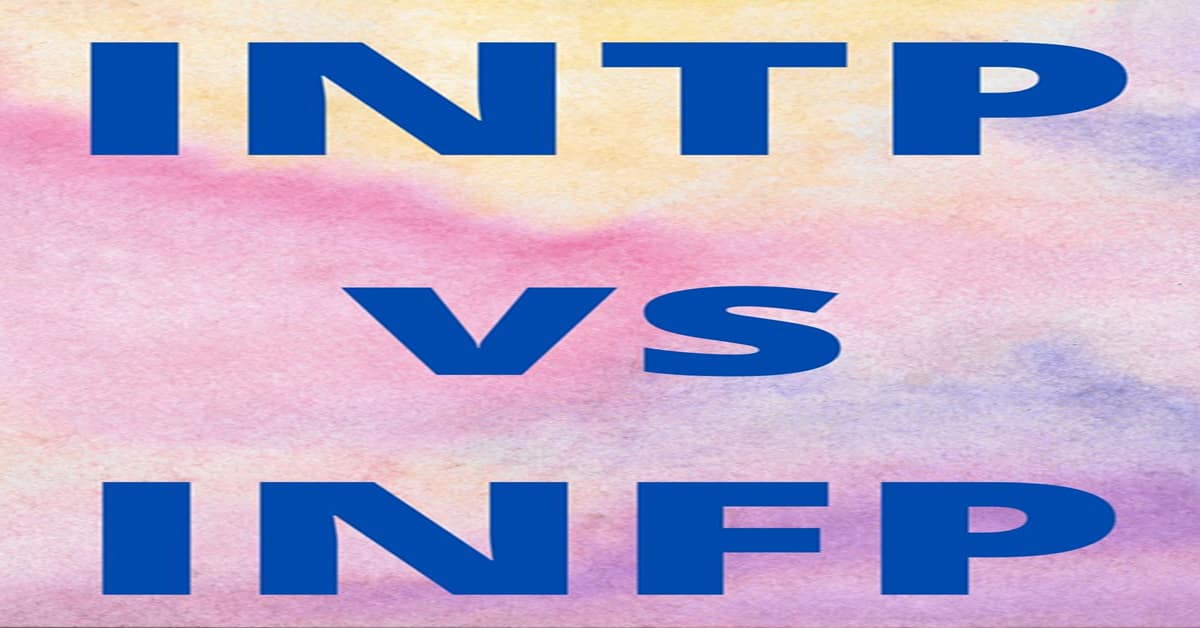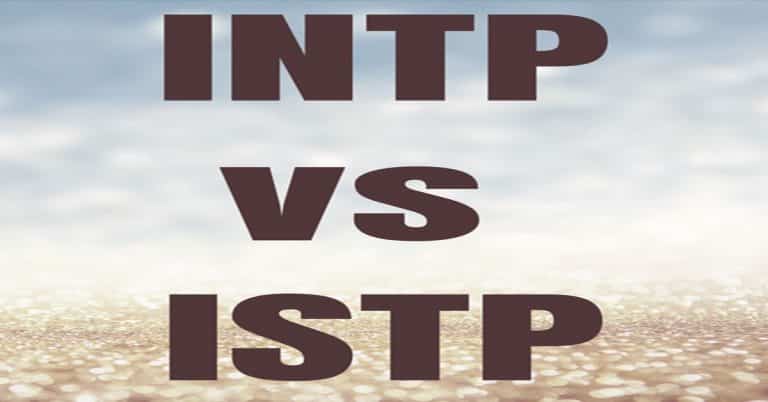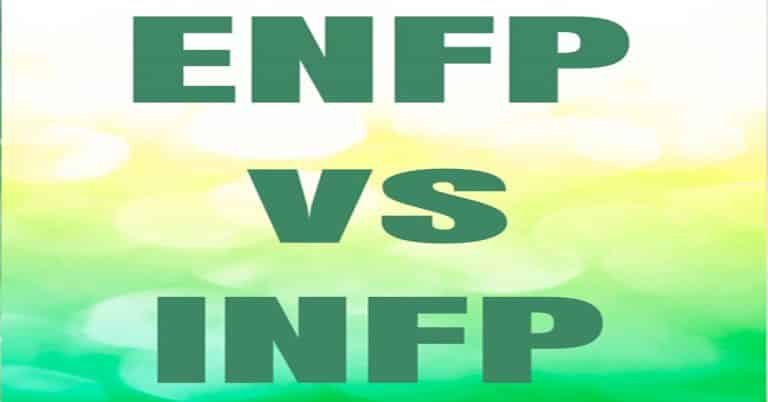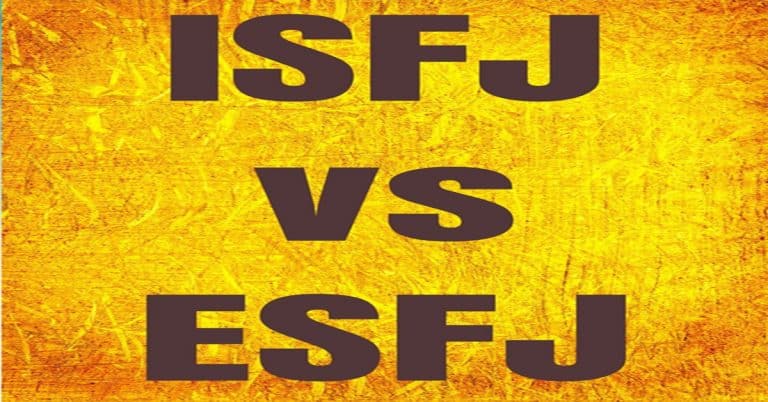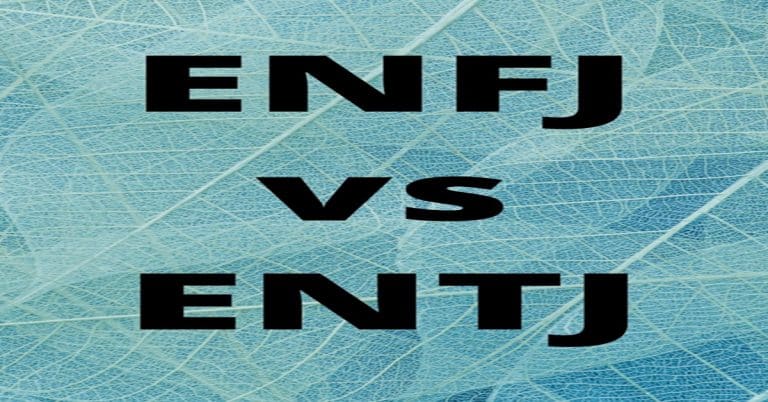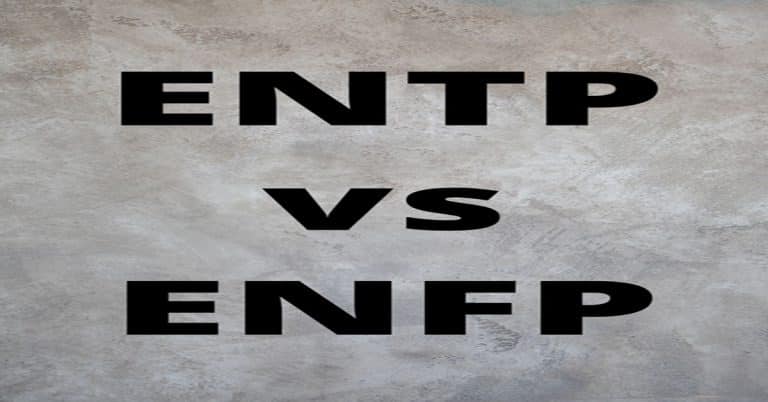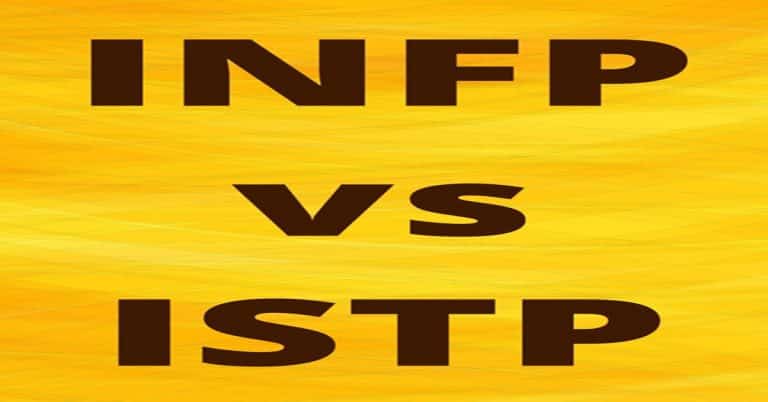INTP vs INFP
Contents
Differences and Similarities
INTP and INFP personalities resemble one another in many significant aspects. Both are free, individual, and don’t tend to conform to the norms around them. Honest and unapologetically straightforward, INTPs and INFPs are bohemian spirits that relish in an environment without constraint and boundaries. Plus, since they share both Extraverted Intuition and Introverted Sensing functions, it’s often challenging for people to distinguish between INTP vs INFP personalities.
But, since these two types are also very unique, there are noticeable differences between the two. We’ll dissect the five most crucial differences between INTPs and INFPs, and analyze their similarities to determine how these two personalities fare in relation to society and themselves.

Critical Differences Between INTP vs INFP Personalities
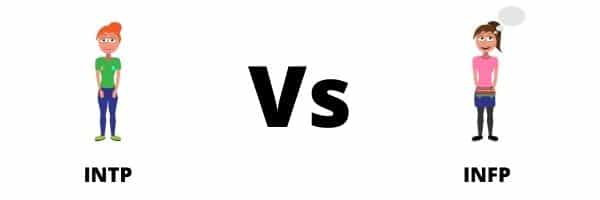
Despite the many similarities they share, there are inherent intrinsic differences in how INTPs and INFPs approach and perceive the world. With that said, here are the five most notable differences between INTP and INFP personalities:
- Understanding and Dealing with Emotions
INFPs, by nature, fall into the Introverted Feeling function and are very in touch with their emotions. Even more importantly, they don’t have problems expressing their feelings when they feel the need to do so. While they do need structure and logic in life, they don’t rack their brains about the meaning of life, or the lack of it.
Conversely, INTPs are dominated by the Introverted Thinking function. This means that they can often get disconnected from their feelings and resort to nihilistic behavior in fear of a meaningless life. When faced with an emotional problem, they usually try to think their way out of it instead of dealing with the emotion itself.
- Worldviews
For INFPs, honesty is always the top priority over all other things. They have a fixed moral compass and appreciate authenticity above everything else. They deeply disapprove of cognitive dissonance and won’t trade their secured morals and values for anything.
While INTPs do share some similar values, they aren’t as rigid w to changing their worldview. They are rational thinkers that don’t mind exploring other points of view. This is why most INTPs often have an amalgamated worldview spanning across many different life philosophies or religious teachings.
- Logic and Opinions
Another significant difference between the two personalities is how they observe and accept their conversation partner’s opinions. INFPs will almost always listen to another person’s opinions with complete attention and respect. But, while they are careful listeners, arguing with them often won’t lead you anywhere. This is because they tend to stick to their views, and changing their perspective can be challenging.
INTPs are the polar opposite of this. They won’t just listen to an opinion for the whole day. Instead, they will try to get to the logic behind it. However, if the person they’re listening to has sound reasoning to back up their argument, INTPs won’t be hesitant towards changing their opinion.
- Stress and Pressure
When faced with distress and anxiety, these two personalities tend to respond in two very different ways. INTPs can’t handle heavy pressure and scrutiny very well. Then tend to fall apart in such situations, isolate and close up in themselves, and express difficulty trusting other people.
In contrast to this, INFPs will overcompensate all of their activities to try to deaden and suppress the feeling of stress and anxiety. They will over-socialize or fill their schedule with work, studying, or other attention-demanding activities. Although this seems like an excellent way to deal with problems, they just do this to escape their real thoughts and feelings.
- Fear
In line with the previous difference, INTPs and INFPs also have different fears going through life in general. An INTPs worst fear is getting stuck in life and feeling the loss of potential as time goes by. This fear often manifests itself through a lack of confidence, immaturity, and arrogant behavior as a self-defense mechanism.
As romantic and loyal personalities, INFPs have an immense fear of losing their close ones through conflicts or interpersonal issues. INFPs will also have a tough time going through separations or significant life changes.
Are INTPs and INFPs Compatible?
INTPs and INFPs are undoubtedly compatible enough to create stable long-term friendships and romantic partnerships. Unlike many other personality types, both INTPs and INFPs want to take their time before becoming romantically involved. Neither have rigid or constrained life schedules, and both have a close idea of what social fun entails.
Another major reason why these two personalities excellently mesh together as friends and romantic partners is that both tend to get bored reasonably quickly. This means that the relationship between them will always be marked with new adventures and mutual goals to strive towards.
Nevertheless, even with such vital similarities between the two, some differences may present a hindrance for a relationship between the two. INFPs are very romantic and devoted to their partners. To INFPs, love means nurturing and careful love cultivation. They aim to connect on an emotional level rather than an intellectual one.
Oppositely to this, INTPs don’t particularly relish romance. They express love more through support than constant compliments and nurturing. Moreover, they can often find their partner’s devotion suffocating and constraining. All of this can lead INTPs to take INFP’s emotions lightly, which can be very detrimental to the latter partner.
The critical thing to remember about relationships between INTP vs INFP personalities is that a relationship between the two can happen if both partners want it to happen. INTPs and INFP have the head start over other personality pairings due to the many similar traits they share.
A Quick Synopsis of the INTP/INFP Dynamic
Free-spirited, like-minded, and unconstrained by everyday society norms, INTPs and INFPs are certainly some of the most innovative and progressive out of all 16 personality types. They click on many fundamental levels and share an extensive list of values and behavioral traits. However, they also have some core differences that can cause sparks between INTP vs INFP but also make them a powerful pairing.

